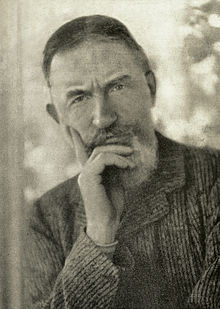
George Bernard Shaw
We found 6 free papers on George Bernard Shaw
Essay Examples
Overview
George Bernard Shaw: Socialist and Playwright
George Bernard Shaw
Society
George Bernard Shaw’s power as a dramatist is directly linked to hiswork as a socialist both before and during his work as a playwright. It isbecause these two forces are so inextricably tied that a working knowledgeof both his socialist ideals and his ideas concerning the theatricalprocess is not only useful, but on some levels…
Pygmalian Play as a Shavian Play
George Bernard Shaw
Play
The year of Pygmalion’s London premiere, marked tremendous changes in British society. Social roles in the Victorian era were viewed as natural and largely fixed: there was a fixed and accepted social order. In the aftermath of WW1 this fixed order was becoming more elastic. Shaw was first and foremost a playwright but he was…
The Man of Destiny” by George Bernard Shaw Sample
George Bernard Shaw
Man
I’m traveling to analyse an infusion from a drama “The adult male of destiny” by George Bernard Shaw. an Irish dramatist. who was largely talented for play. He wrote more than 60 dramas. About all his Hagiographas are devoted to the societal jobs. but have a vena of comedy which makes their blunt subjects more…
A Study of Mrs. Warren’s Profession Analysis
George Bernard Shaw
Study
Although George Bernard Shaw finished composing Mrs. Warren’s Profession in 1893. he was unable to acquire a licence to present it until 1902. Since this drama deals with the dual criterions between rich and hapless and work forces and adult females the inability for it to be performed in London for nine old ages is…
George Brenard Shaw
George Bernard Shaw
Literature
Socialism
On the dark of July 26th, 1856 one of the greatest dramatists in history, George Bernard Shaw, was born. George’s female parent, Lucinda Elizabeth Gurly, was a blue blood, while his male parent, George Gurly, was a hapless alky. Shaw had two sisters, Elinor Agness, who died of TB at age 20, and Lucinda French…
Henry Higgins character sketch Character Analysis
Character Analysis
George Bernard Shaw
Henry Higgins is a major character in the play Pygmalion, first introduced in Act 1. Despite his lack of filter and sometimes jerky behavior, he is likeable due to his education, talent with dialects and language, and lack of malice. He also demonstrates generosity by providing Elise Doolittle with speech lessons, a place to stay,…
| information | Short biography of George Bernard ShawGeorge Bernard Shaw (26 July 1856 – 2 November 1950), known at his insistence simply as Bernard Shaw, was an Irish playwright, critic, polemicist, and political activist. His influence on Western theatre, culture and politics extended from the 1880s to his death and beyond. He wrote more than sixty plays, including major works such as Man and Superman (1902), Pygmalion (1912) and Saint Joan (1923). With a range incorporating both contemporary satire and historical allegory, Shaw became the leading dramatist of his generation, and in 1925 was awarded the Nobel Prize in Literature. Born in Dublin, Shaw moved to London in 1876, where he established himself as a writer and novelist. By the mid-1880s he was a respected theatre and music critic. Following a political awakening, he joined the gradualist Fabian Society and became its most prominent pamphleteer. Shaw had been writing plays for years before his first public success, Arms and the Man in 1894. Influenced by Henrik Ibsen, he sought to introduce a new realism into English-language drama, using his plays as vehicles to disseminate his political, social and religious ideas. By the early twentieth century his reputation as a dramatist was secured with a series of critical and popular successes that included Major Barbara, The Doctor’s Dilemma and Caesar and Cleopatra. Pygmalion was his best-known play, which was a great success in London and New York. His collected works represent, among other things, an extended reflection upon the dehumanising processes of modernity. In 1938 he provided the screenplay for a filmed version of Pygmalion, for which he received an Academy Award. He continued to write prolifically into his eighties. Themes which earn Shaw’s works a place among literature’s great discussion of some of the profoundest problems in contemporary philosophy are the function of art and the nature of the artist in society, the open society and its enemies, the purpose of education, the relationship between religion and science, the politics of power and the ethics of war. Shaw died at his home on 2 November 1950, aged 94, having suffered from cerebral thrombosis. Although he made clear his desire to be buried in Dublin, he was buried in Westminster Abbey, the first person of neither noble nor royal ancestry to be given that honour since the burial of Sir Isaac Newton in 1727. General Essay Structure for this Topic
|
|---|

